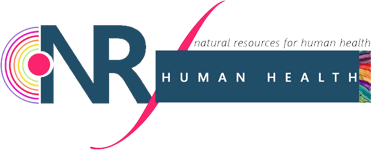About the Journal
Editorial Board
Editorial Office and Publisher
Ownership
Article Processing Charge
Open Access and Licensing
Personal Data Protection
Terms and Conditions: Cookie policy and Privacy policy
Copyright and Copyright Transfer Agreement
Visagaa Publishing House Repository Policy
Visagaa Publishing House CrossMark Policy
The Initiative for Open Citations (I4OC)
Archiving
Plagiarism Policy
Online first
Current issue
Archive
Ethics Statements for Natural Resources for Human Health
Ethical Guidelines
Post-Publication Policies
Responsibilities of Editors and Publishers
Conflict of Interest Statements for Natural Resources for Human Health
Human and Animal Rights Policy
Complaints and Appeals Policy
Allegations of Research Misconduct Policy
Authorship and Contributorship Policy
Publication Ethics and Malpractice Policy
Ethics approval and informed consent
Guidelines for the Use of Generative AI and AI-Assisted Technologies in Manuscripts for Natural Resources for Human Health
For authors
Instructions for Authors
Submitting manuscript – step by step
Authorship and Contributor Guidelines
For reviewers
The peer-review process
Recognition for Reviewers
Visagaa Author Services
About the Journal
Editorial Board
Editorial Office and Publisher
Ownership
Article Processing Charge
Open Access and Licensing
Personal Data Protection
Terms and Conditions: Cookie policy and Privacy policy
Copyright and Copyright Transfer Agreement
Visagaa Publishing House Repository Policy
Visagaa Publishing House CrossMark Policy
The Initiative for Open Citations (I4OC)
Archiving
Plagiarism Policy
Ethics Statements for Natural Resources for Human Health
Ethical Guidelines
Post-Publication Policies
Responsibilities of Editors and Publishers
Conflict of Interest Statements for Natural Resources for Human Health
Human and Animal Rights Policy
Complaints and Appeals Policy
Allegations of Research Misconduct Policy
Authorship and Contributorship Policy
Publication Ethics and Malpractice Policy
Ethics approval and informed consent
Guidelines for the Use of Generative AI and AI-Assisted Technologies in Manuscripts for Natural Resources for Human Health
Guidelines for the Use of Generative AI and AI-Assisted Technologies in Manuscripts for Natural Resources for Human Health
For Authors
1. Transparency and Acknowledgment:
2. Accuracy and Verification:
3. Ethical Considerations:
4. Data Privacy and Security:
For Reviewers
1. Evaluation of AI Usage:
2. Bias and Ethical Concerns:
3. Technical Competence:
For Editors
1. Policy Enforcement:
2. Training and Awareness:
3. Handling Misconduct:
General Principles
1. Responsible Research:
2. Innovation and Collaboration:
3.. Ongoing Review:
1. Transparency and Acknowledgment:
- Any use of generative AI or AI-assisted technologies in the preparation of a manuscript must be fully disclosed at the time of submission. This includes, but is not limited to, writing assistance, data analysis, image creation, and editing.
- Authors must provide a clear description of the AI tool used, including its version and the specific ways it contributed to the manuscript.
2. Accuracy and Verification:
- Authors are responsible for verifying the accuracy and reliability of any content generated by AI tools. AI-generated text, data, or images should be critically evaluated and validated by the authors.
- Manuscripts must not contain AI-generated content that is unverified, misleading, or incorrect.
3. Ethical Considerations:
- The use of AI tools must adhere to ethical guidelines and standards. Authors should ensure that AI-generated content does not plagiarize existing works or infringe on intellectual property rights.
- Proper credit must be given to any sources or datasets used by the AI tools in generating content.
4. Data Privacy and Security:
- Authors must ensure that the use of AI tools complies with data privacy and security regulations. To prevent unauthorised access or breaches, sensitive or personal data must be anonymized or secured.
For Reviewers
1. Evaluation of AI Usage:
- Reviewers should assess whether the use of AI tools by the authors has been appropriately disclosed and described in the manuscript.
- Reviewers should evaluate the validity and reliability of AI-generated content and ensure that it meets the journal's standards for quality and accuracy.
2. Bias and Ethical Concerns:
- Reviewers should be vigilant about potential biases introduced by AI tools in the research process. Any concerns regarding bias, ethical issues, or the misuse of AI should be communicated to the editors.
3. Technical Competence:
- Reviewers should possess or seek the necessary technical competence to assess the use of AI tools in the manuscript. If needed, they should consult with experts in AI and related fields.
For Editors
1. Policy Enforcement:
- Editors must ensure that the journal’s policies on the use of AI tools are clearly communicated to authors and reviewers. Compliance with these guidelines should be a prerequisite for manuscript acceptance.
- Editors should verify that AI usage is transparently reported and that AI-generated content is rigorously evaluated for accuracy and ethical compliance.
2. Training and Awareness:
- Editors should stay informed about the latest developments in AI technologies and their applications in scientific research. Regular training and updates should be provided to editorial staff and reviewers.
- Editors should promote awareness about the potential benefits and limitations of AI tools among the journal's contributors.
3. Handling Misconduct:
- Any suspected misuse of AI tools or failure to disclose AI involvement should be investigated promptly. Editors should take appropriate actions, including requesting additional information from authors or retracting the manuscript if necessary.
- Editors should maintain transparency in handling cases of AI-related research misconduct and ensure that corrective measures are communicated to the scientific community.
General Principles
1. Responsible Research:
- The journal encourages the responsible and ethical use of AI tools in research. AI should be used to enhance scientific work's quality and efficiency, not compromise it.
2. Innovation and Collaboration:
- The journal supports innovation in AI applications and encourages collaboration between researchers, AI developers, and other stakeholders to advance the field responsibly.
3.. Ongoing Review:
- The guidelines on AI usage will be periodically reviewed and updated to reflect emerging best practices and technological advancements. Feedback from the journal’s community is welcome to ensure the guidelines remain relevant and effective.
We process personal data collected when visiting the website. The function of obtaining information about users and their behavior is carried out by voluntarily entered information in forms and saving cookies in end devices. Data, including cookies, are used to provide services, improve the user experience and to analyze the traffic in accordance with the Privacy policy. Data are also collected and processed by Google Analytics tool (more).
You can change cookies settings in your browser. Restricted use of cookies in the browser configuration may affect some functionalities of the website.
You can change cookies settings in your browser. Restricted use of cookies in the browser configuration may affect some functionalities of the website.


